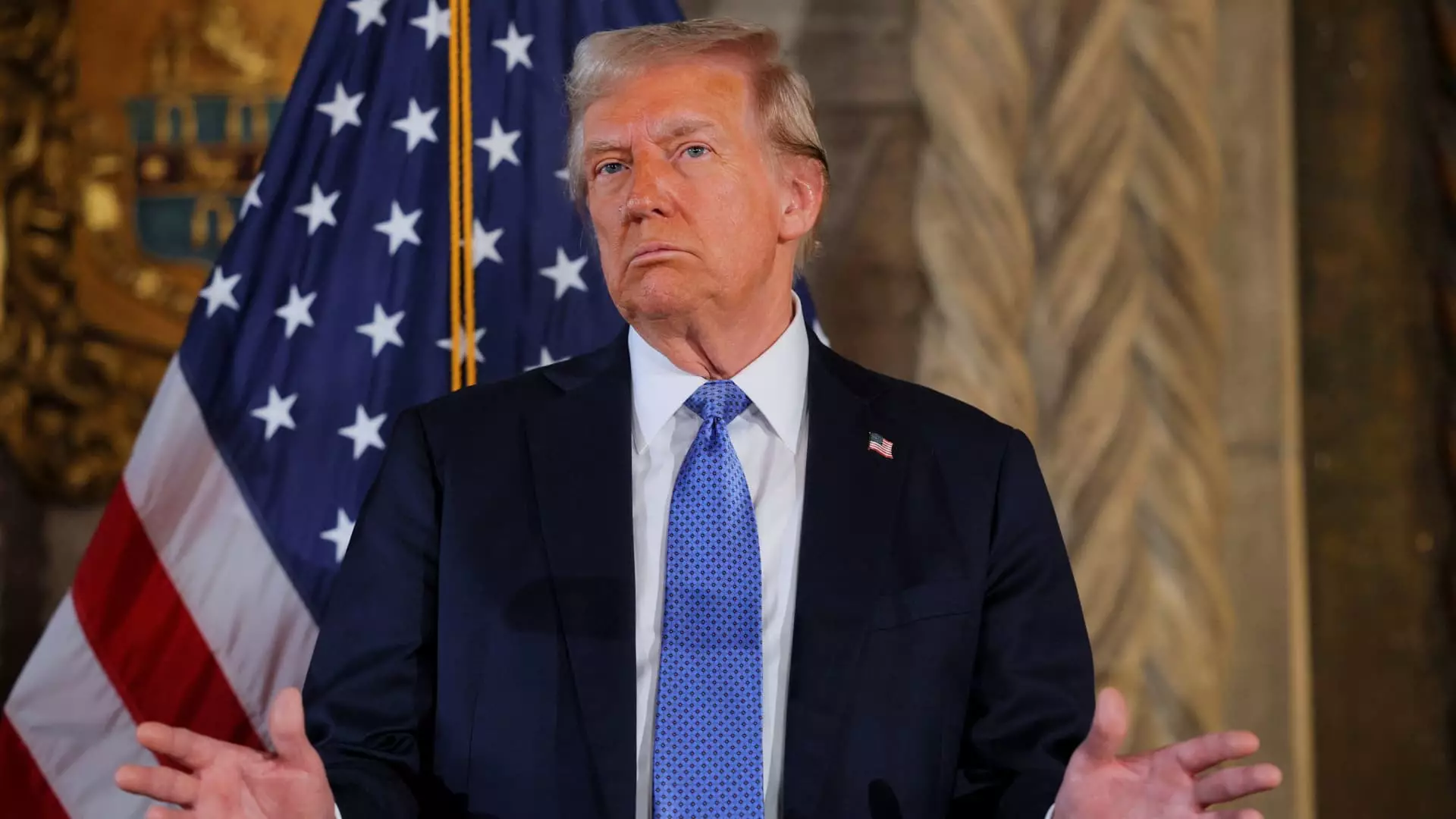The announcement made by President-elect Donald Trump regarding the European Union’s (EU) trade deficit with the United States marks a pivotal moment in transatlantic relations. His assertion that the EU must rectify this trade imbalance by significantly increasing its imports of U.S. oil and gas or face punitive tariffs introduces an aggressive, transactional dimension to international trade. This development, while reflecting Trump’s characteristic negotiating style, poses a variety of implications for both sides and raises significant questions about the future of global commerce.
In the context of international economics, trade deficits serve as a barometer of financial health between nations. The reported $131.3 billion trade deficit between the U.S. and the EU in 2022 casts a spotlight on the complexities of bilateral trade agreements. Trump’s call for the EU to address this imbalance through energy purchases highlights his strategic focus on the fossil fuel sector and his overarching objective to leverage energy exports as a means of economic diplomacy.
This tactic is not merely a negotiation posture; it underscores the shifting dynamics of energy markets exacerbated by geopolitical tensions, particularly the EU’s dependency on Russian energy. Trump’s insistence on this trade orientation points to a larger narrative wherein energy independence is portrayed as not only an economic necessity but also a geopolitical strategy. However, this hardline approach could incite retaliation and trade wars that could ultimately affect economic stability on both sides of the Atlantic.
The EU’s response, as articulated by unnamed diplomats, reflects a mix of resignation and strategic calculation. Recognizing the call for increased energy imports as a viable pathway to bolster U.S. relations, the EU is likely to engage in negotiations that could transform this threat into a bargaining chip. Chancellor Olaf Scholz’s recent conversation with Trump suggests that channels of communication remain open, but the complexity of the matter will require a nuanced understanding of both energy dependency and economic repercussions.
Furthermore, European Council President António Costa’s comments following the EU’s final meeting of the year indicate an intention to fortify transatlantic ties while simultaneously preparing for a more combative trade landscape. This duality of approach suggests that the EU is aware of the delicate balance required to maintain diplomacy while safeguarding its economic interests.
The prospect of tariffs looms large, with Trump having historically threatened such measures against various trade partners. Economic analysts express concerns about the potential for domestic inflation to spiral if tariffs are enacted. The interplay between a confrontational trade approach and the intricacies of the global economy could precipitate unwanted consequences, such as a decrease in foreign investment and disruptions to supply chains across various sectors.
The perspective of Enrico Letta, former Prime Minister of Italy, introduces a critical viewpoint on the need for the EU to prepare for reciprocal measures. He points out the potential pitfalls of a transactional strategy that conflates tariffs with energy trade. By suggesting that the EU consider financial retaliation, Letta highlights the critical need for strategic unity among EU member states as they navigate the complexities of U.S. demands.
As the largest recipient of EU goods, the U.S. remains a significant trade partner for Europe. However, Trump’s call for increased energy imports reflects a deeper reliance on fossil fuels in an age where renewable energy is starting to take center stage. The EU has expressed an intention to diversify its energy sources, particularly in light of the ongoing conflict in Ukraine and the need to reduce dependence on Russian energy.
European Commission President Ursula von der Leyen’s comments about potentially cheaper U.S. liquefied natural gas (LNG) provide insight into a pragmatic approach that the EU could adopt. The pursuit of negotiations post-Trump’s inauguration in 2025 will be crucial for securing favorable energy deals. This could, in turn, reshape the landscape of EU energy procurement, creating opportunities for sustainability while fulfilling U.S. trade ambitions.
As Donald Trump steps into a new role with a confrontational trade agenda, the interplay between the U.S. and the EU promises to be fraught with challenges and opportunities. The potential for tariffs, the urgency to increase energy imports, and the broader implications for global trade will require both sides to navigate uncertain waters carefully. Ultimately, the future of transatlantic relations will depend on the willingness of both parties to engage in constructive dialogue while balancing national interests with the demands of a complicated global economy.


Leave a Reply